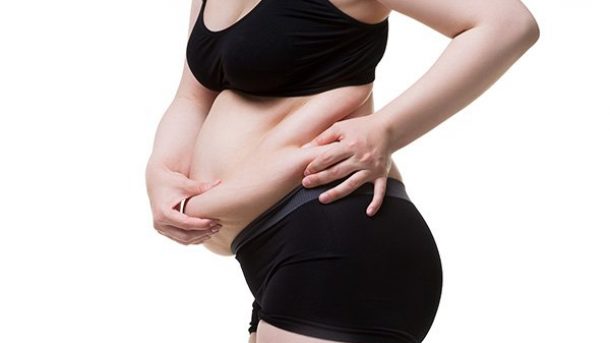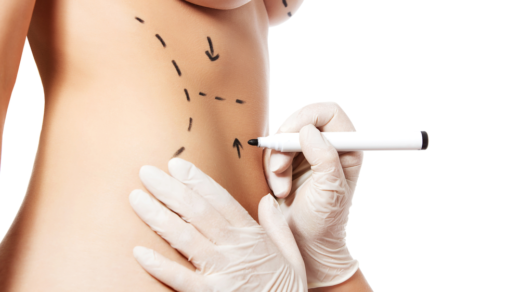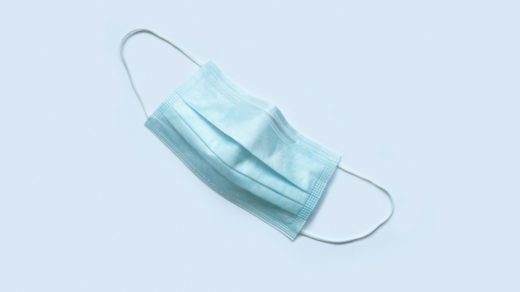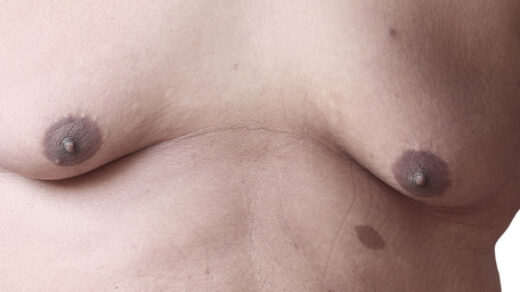Body lift surgeries include a variety of procedures to get rid of excess skin around the abdomen, thighs, arms, and back.
Since these procedures are often done in combination with one another, the recovery period can vary. More invasive surgery means more recovery time. So, you will need to adapt to a new routine for at least 6-8 weeks before you will be able to return to your pre-surgery routine (but with a tighter body).
You’ll need to learn how to deal with pain/discomfort, how to sleep comfortably, and how to move around after your body lift. No need to worry, though, your specialized care team will give you detailed aftercare instructions to help you lead a swift and comfortable recovery.
To help you prepare better, we’ve put together a body lift recovery timeline. This timeline is a guide to help you prepare and also gives you insight as to what to expect after your surgery. We have broken it down to a week-by-week timeline. Remember it is a guide only and your recovery time may vary.
Body Lift Guide
Get the Guide to Skin Reduction Surgery after Weight Loss.
Learn more about Body Contouring
Body Lift Procedures
Before we go into detail on recovery tips and expectations, let’s first define what “body lift” exactly means. Here, at Coco Ruby, “body lift” is the umbrella term that refers to any combination of the following procedures;

Normal Body Lift Recovery
A normal recovery after body lift surgeries will have some level of discomfort. You will need to be patient, and give your body the rest it needs to heal the extensive wounds.
Body lift procedures are invasive. So, you can expect to have one or more of the following symptoms during your recovery;
Fatigue
- It is normal to feel tired after getting a body lift.
- It’s the natural body response to injury.
- All the inflammatory mediators will direct your body’s energy towards healing, so you will feel drained during the first few days.
Pain
- Pain will be at its worst during the first week post-surgery.
- It might restrict your movement, especially if you had a tummy tuck or belt lipectomy.
- Arm lifts will further restrict your upper body movements and will make driving and showering hard during the first week of recovery.
Swelling
- Natural healing fluids will accumulate in your body lift wounds after your surgery.
- To prevent this, your surgeon may use several plastic drains. These may be kept in for up to a week or more depending on output.
Bruising
- Bruising might sometimes extend beyond the wound and affect adjacent areas (like the armpit, buttocks, groin, and thighs).
- This is normal and should not worry you.
- Bruising will go away on its own. Usually, within 2 weeks after your body lift.
Numbness
- Since body lifts usually involve cutting out unwanted skin and tissue, some sensory nerves supplying the skin might be damaged.
- This can lead to a temporary loss of sensation in the target areas of your body.
Minor bleeding
- Minor bleeding that can be stopped with a couple of minutes of applying pressure is not a cause for concern.
- This happens sometimes, and should not cause panic.
The above symptoms are all a normal parts of body lift recovery and should not cause any concern. They’re your body’s natural response to injury and will improve with time.
The intensity, location, and duration of post-op symptoms are related to the kind of lifts you had done. If you had an arm lift, you will have arm wounds and pain. If you had a thigh lift, you’ll have swollen and bruised legs. And so on.
Concerning Symptoms After Body Lift
As with any surgery, a full or partial body lift comes with some infrequent risks. During your recovery, keep an eye out for any of the below symptoms:
- Fever (temperature above 37.9 C)
- Unbearable pain in any body part
- Pus draining out of your wound(s)
- Redness and swelling after an initial improvement of the wounds
- A wound that is bulging outward
- Bleeding that cannot be stopped with pressure
- Break in one or more sutures
These symptoms can mean that you have a complication, such as; a wound infection, seroma, or hematoma. If that is the case, then it’s important you don’t hesitate to contact your surgeon, organise a visit and have it sorted out as quickly as possible.

Body Lift Recovery Timeline
Immediately After Body Lift
After waking up, you will be in the recovery room for a while but once stable you will be taken to your room. It is normal to feel exhausted and sleepy during the first few hours. Your nurses will tend to all your needs and will give you antibiotics and painkillers as necessary. They will also educate you about what to do at home when discharged.
Depending on how extensive your body lift was, you will spend anywhere between 1 to 5 days at the hospital for observation. You will have multiple plastic drains coming out of your wounds. These are usually kept in anywhere from 5 days to 15 days and are removed by one of the nurses at our clinic
You will need to sleep in a jackknife position with the head of your bed will be elevated to 45 degrees, and your knees will be bent (if you had a thigh lift or lower body lift).
The first day after your surgery will be mostly bed rest. The nurses will help you use the toilet and wash or shower according to your surgeon’s protocols. Small walks are okay at this stage.
After 1 -5 days, your surgeon will discharge you with the following post-operative care instructions:
- You will be prescribed a course of antibiotics, usually Keflex, and also analgesic medication to cope with the pain. Please tell the nursing staff if you are allergic to any drugs.
- Follow the post-op instructions outlined by your surgeon regarding showering, mobilising and resting.
- You will need to wear your compression garments 24/7 for at least 6 weeks or according to your surgeon’s protocols.
- Sleep with an elevated upper body for at least 4 weeks
- An appt will be made at our clinic for the removal of your drains when ready. Removal will depend on drainage amounts in each 24hr period and will be determined by our clinic nurses. You will need to be able to measure or ascertain the amount of fluid drained in every 24 hrs.
Week 1
The first-week post discharge from the hospital should be spent resting at home. You will need support so this is possible.
In other words, no chores, bending over, sports, lifting or driving. Just sit back, grab a book or the remote, and relax. Have a family member or a friend take care of you as your body lift incisions heal.
That being said walking around your house is encouraged during body lift recovery. This is because it helps promote good healing responses and prevents blood clots.
Sleeping on your back with your head elevated while wearing compression garments will need some getting used to at first. Eventually, after a full week passes, you will get more used to it.
By the end of the first week, the pain, swelling, and bruising will start to improve.
Week 2
As you go into your second week after your body lift you will start to feel more comfortable. Your wounds will hurt less, and you won’t be using painkillers as often.
Although swelling and bruising will still be visible they will start to gradually fade. Intense sports, driving, and sex should all still be avoided during this period. Light walking is the only sport activity that’s recommended.
Weeks 3-4
During the 3rd and 4th weeks of body lift recovery, the pain will be significantly better. The swelling and bruising should now be minimal.
You can possibly go back to work around the beginning of the 3rd week after your body lift. Keep in mind that you should still avoid; lifting objects, intense physical movements, twisting your torso and sitting for a long time at this time. If your job is physically demanding you will need to take more time off to recover. However, you can start driving for short distances but avoid long drives still. Your arm lift and tummy tuck wounds can make driving comfortable, but this will improve with time.
Weeks 4-6
After a month of your body lift procedure, most of the symptoms will be either gone or almost gone.
We recommend that you wait till after 6 weeks before resuming weight lifting and intense physical exercises that involve body bending and twisting. You can usually resume sexual intercourse and moderate sports activities at this time.

Returning to Activities After Body Lift
All our patients want to know when they can drive, do sports, lift weights, and have sex after their body lift. Well, here are your answers;
1. When can you go back to work after a body lift?
You can go back to work 1-3 weeks after your body lift surgery. Body lifts that are less invasive usually only require 1 week of time off from work. In contrast, if your body lift included a tummy tuck, circumferential lift, or thigh lift, then you will need to extend your work leave for up to 3 weeks.
2. When can you go back to the gym after a body lift?
It is recommended that you wait till after 6 weeks before going back to weightlifting and intense exercise. Light walking can be started the next day after your surgery. The pace and duration can be increased over the following 4-5 weeks before going back to your normal sports routine.
3. When can you drive after a body lift?
You can usually go back to driving your car once you have stopped taking narcotic drugs for pain and your ability to move is at a more normal level.
It can be challenging since you could have brachioplasty wounds, abdominoplasty wounds, and thigh lift wounds. Sitting in a car seat for a long time will cause mid-body pain. Holding your arms to grab on the steering wheel will make your arms hurt. After 4 weeks of your body lift, driving should not be an issue.
4. When can you have sex after a body lift?
Body lift wounds can be extensive and need time to heal. Engaging in sexual intercourse can cause pain and trauma to your wounds. This is especially true in regard to your tummy tuck and lower body lift wounds. This is why it is you should avoid sex for at least 4 weeks after your body lift procedure.
Body Lift Recovery Tips
If you go online, you’ll find hundreds of tips to speed up recovery and make it smoother after a body lift. Our surgeons have a few tips for you to have a comfortable and seamless post-op experience:
- Avoid direct sunlight for a few months after your lift: Sun exposure can lead to hyperpigmentation and can worsen scarring. If you are going to sit in the sun, wear an SPF 50+ sunscreen.
- Sleep with your head up: To reduce swelling and tension on your body lift wounds, sleep with your head elevated. A recliner bed can be perfect for this purpose.
- Use pillows: Since you will be sleeping on your back for a prolonged time, make use of pillows to make yourself comfortable and support yourself on the sides.
- Plan in advance: Now that you have a complete timeline for recovery, you know what you need. Call the people you need to call, make the arrangements that you need to make, and be fully prepared for your body lift.
- Use ice packs: Ice packs are an excellent remedy for swelling and bruising. You can apply ice packs 4-6 times a day on your body lift wounds to make bruising and swelling resolve faster.
- Use anti-scar creams: Your surgeon will prescribe you anti-scar creams to reduce scarring after your body lift. You will be instructed to start applying these creams as of the 6th week of recovery.
- Follow instructions: All the aftercare recommendations that our surgeons give are based on medical scientific evidence. You should follow them to the word to take the full benefit of your plastic surgery.

FAQs
How long does it take to recover from a full-body lift?
- Recovery from a full-body lift takes up to 6 weeks. A “full” body lift includes Brachioplasty, breast lift, back lift, abdominoplasty, and lower body lift. The more invasive the surgeries are, the longer recovery is.
What do you wear after a body lift?
- After a body lift, you wear your compression garment 24/7 as instructed by your surgeon. This is an essential step in your recovery.
How do you prepare for a lower body lift?
- You need to take leave from work.
- Call a friend or family member to accompany you to the hospital and take care of you during your stay.
- It’s also important you buy the needed supplies beforehand and be ready to spend some time in bed healing.
How do you get out of bed after a body lift?
- You might require assistance to get out of bed the first few days after a full body lift. You should focus on avoiding tensing your abdominal muscles. Rotate yourself and push yourself up with your arms to get out of bed. Having a recliner will make getting in and out of bed easier after your surgery.
Is a body lift worth it?
- Yes! If you’ve lost massive weight, a full body lift will complement your great achievement and give you the body you’ve been aiming for. If you’re a mum who wants her pre-pregnancy and pre-motherhood body back, then a full body lift and mummy makeover are for you.







